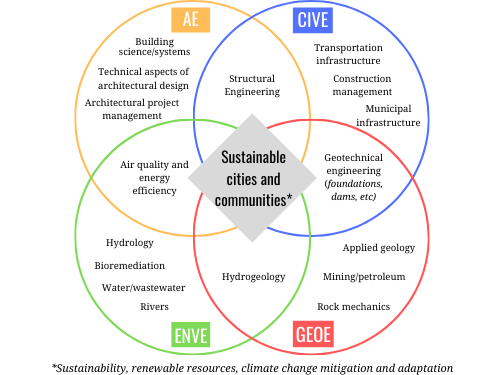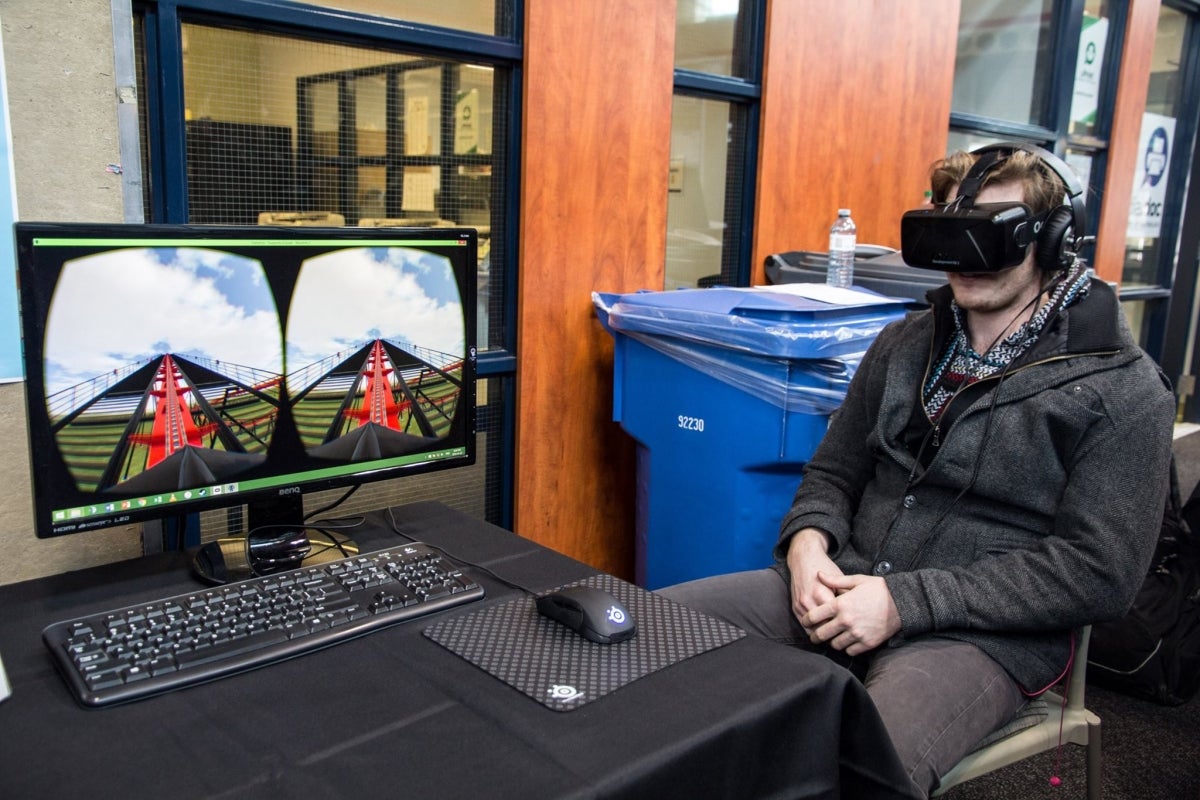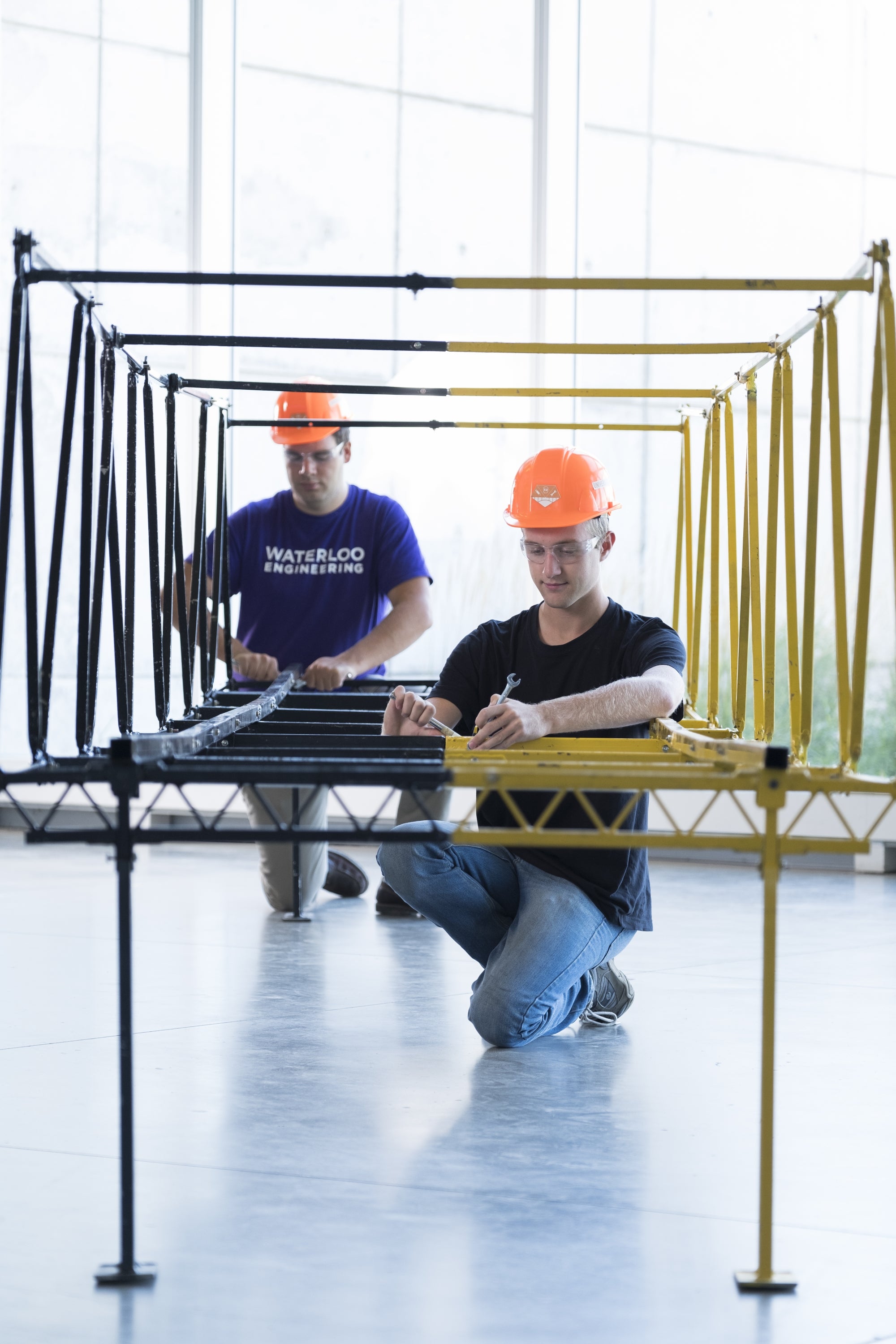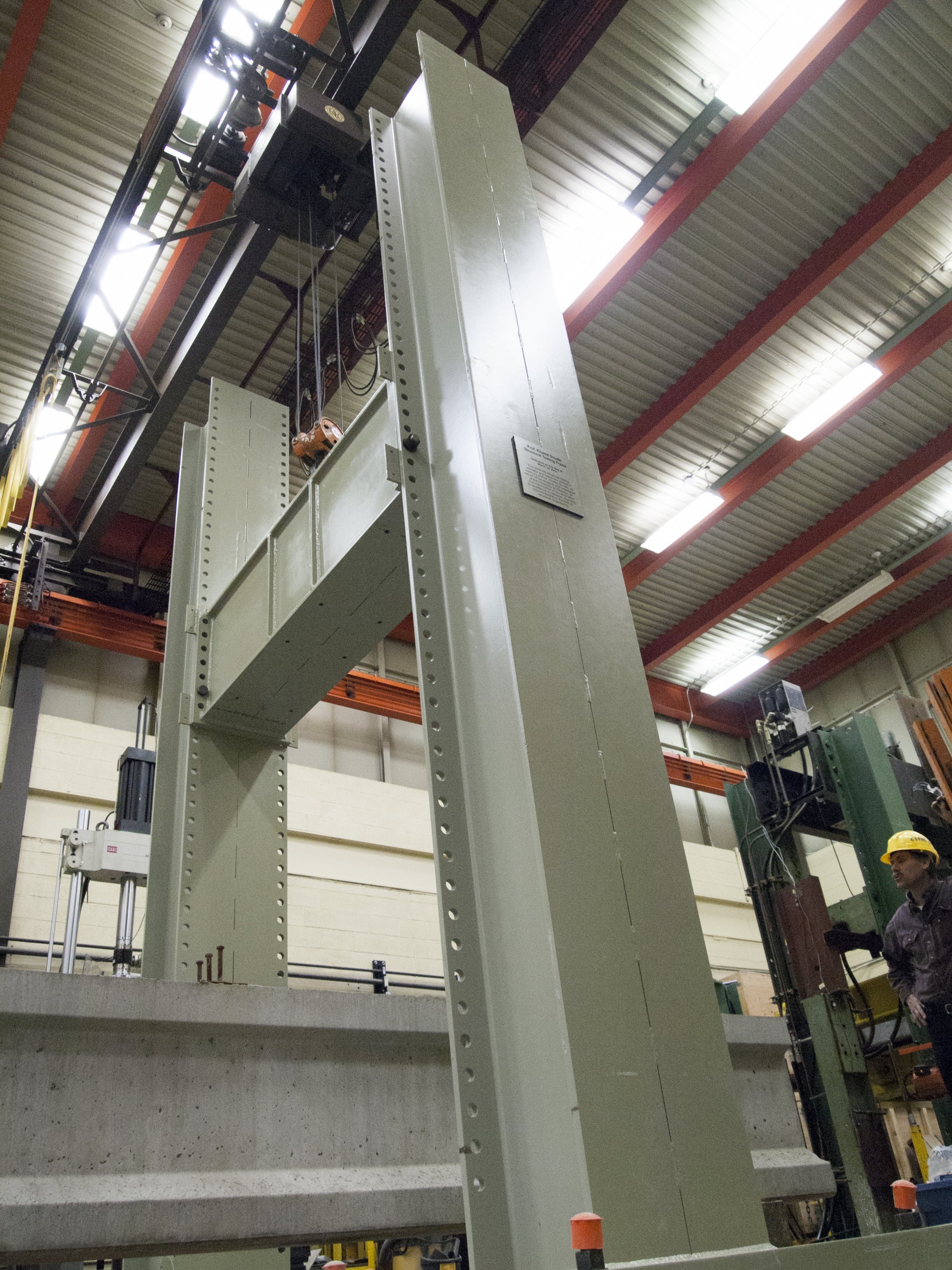
Welcome to one of the largest and most well-respected civil and environmental engineering departments in Canada.
With 830 students enrolled in our undergraduate degree programs for architectural, civil, environmental and geological engineering, and 180 students in our graduate programs, we attract curious, innovative and exceptional individuals from Canada and abroad who are looking to develop their theoretical and practical understanding of all aspects of the world around them – infrastructure and buildings, the natural environment, even soil and rocks.

Our 65 faculty and staff are experts in research areas as diverse as infrastructure management, drinking water treatment and structural rehabilitation, and we pride ourselves on fostering a collaborative academic environment that is both challenging and fun.
All of our undergraduate programs are based on a co-operative education system which we feel offers the best mix of educational knowledge and practical experience. The six co-operative work terms can even go a long way in financing your university education – in fact many of our students graduate with no debt at all.
Our MASc and PhD graduate programs attract the very best students from around the world in developing industry or government funded research projects. Our MEng program will be of interest to those who are looking to upgrade their technical background.


